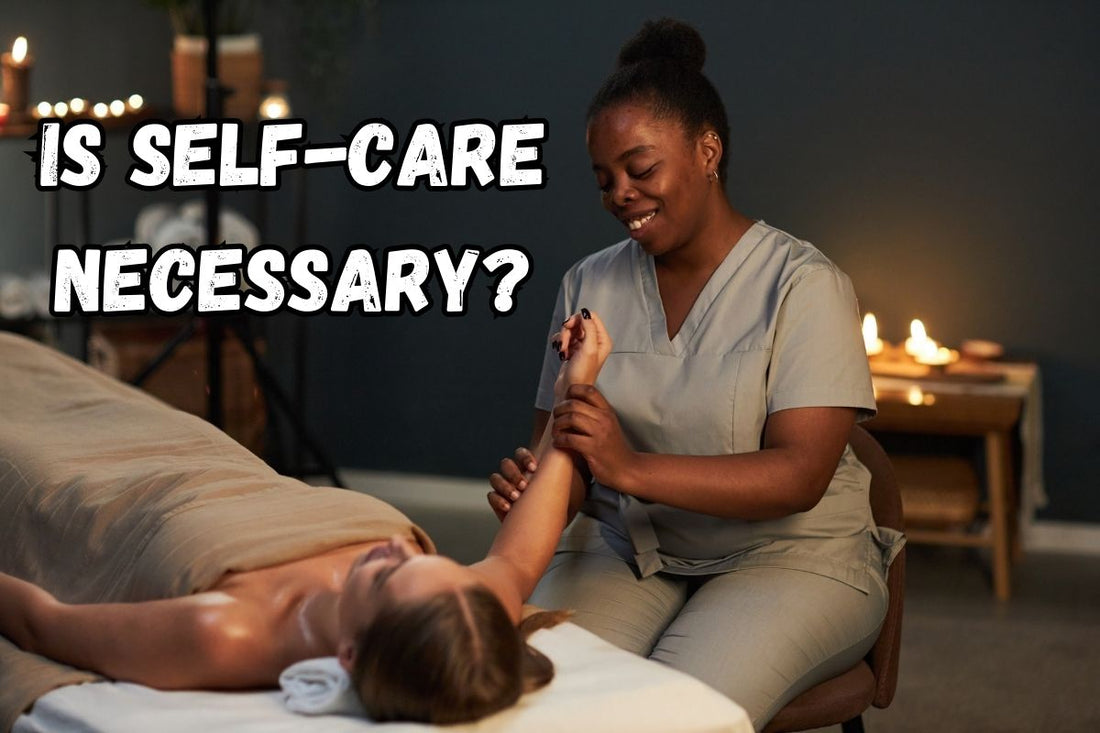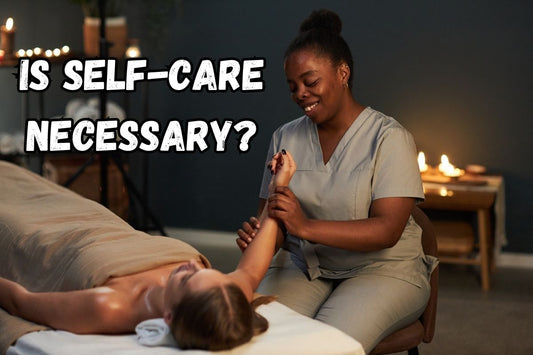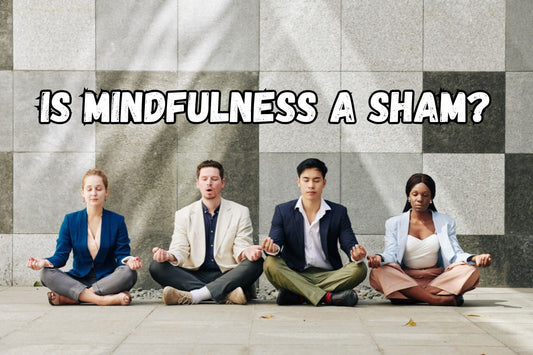By Levi Stanford
Growing up as a millennial with baby boomer parents, I understood self-care as nothing more than practicing good hygiene. My parents were under the impression that if you were stressed or anxious, well, that was just a part of life, you kept moving forward until, eventually, you entered a different season where the stress faded away. I wish I could say that mindset worked well for them, but unfortunately, knowing what I now understand about stress, anxiety, and depression, I can see the effects this "grin and bear it" attitude has had on them, particularly my mother, over the years.
I’ve burned out more times than I can count. Sometimes, pushing through is the only option, but most of the time, prioritizing emotional and physical well-being makes you stronger in the long run. You can’t pour from an empty cup, especially if that cup is now a sad, cracked mug with “Live, Laugh, Love” fading off the side.
Self-care isn’t just important; it’s survival. But let’s be real, some people use it as an excuse to avoid anything remotely uncomfortable. Growth doesn’t come from binge-watching reality TV in the name of “self-care” (trust me, I’ve tried). It comes from tackling life’s messiness head-on.
This blog is about finding the balance, practicing self-care in a way that fuels you rather than holds you back.

What Is Self-Care?
Self-care is just a fancy way of saying, “Do something so you don’t completely lose your mind.” People act like it’s complicated, but really, it’s just basic maintenance, like brushing your teeth, but for your soul. Some people meditate, some hit the gym, and some of us just need ten minutes alone in the car before walking into the house. The key is figuring out what keeps you from snapping at the guy who takes 47 years to order at Starbucks, and then actually doing it regularly.
Why Is Self-Care Important?
Practicing self-care can:
- Reduce stress and anxiety
- Improve your mood and emotional resilience
- Boost physical health and energy levels
- Help you navigate major life transitions
- Strengthen relationships and personal growth
Now, let's dive into some of the best self-care activities to help you feel your best.

Physical Self-Care Activities
Taking care of your body is a great place to start. Here are some simple ways to practice physical self-care. It’s important to practice mindfulness, being aware and present, so you can listen to your body and recognize cause and effect. Notice how certain foods, exercises, and environments make your body feel. If you want to learn more about mindfulness, you can check out my blog on the topic here:
Move Your Body
- Go for a walk or run
- Take a yoga or dance class
- Stretch or do a quick workout
- Release your aggression at the gym with an intense workout, or try punching a punching bag instead of the drywall in your home.
Nourish Yourself
- Eat balanced, healthy meals
- Stay hydrated by drinking plenty of water
- Enjoy a cup of tea or coffee as a mindful break
Prioritize Rest
- Get 7–9 hours of sleep per night
- Take short naps when needed
- Create a relaxing bedtime routine

Mental & Emotional Self-Care Activities
Your mental health is just as important as your physical health. You can have six-pack abs and still be crying in the car because you forgot your Netflix password. So here are a few things you can do to keep your brain from spiraling while your biceps are thriving.
Practice Mindfulness
- Meditate for 10 minutes a day
- Try deep breathing exercises
- Spend time in nature and focus on the present moment
Express Yourself
- Keep a journal to reflect on your thoughts and emotions
- Listen to music or create art
- Talk to a trusted friend or therapist
Take Breaks
- Unplug from social media and screens
- Read a book or listen to a podcast
- Spend time doing a fun hobby

Social & Spiritual Self-Care Activities
Connecting with people and finding a sense of purpose is key to staying emotionally strong. Because if you don’t talk to anyone, you’re just stuck with your own thoughts. And trust me, often that can feel like having a deep conversation with a houseplant, nothing’s getting done, and you’re just watering it every few days hoping for a breakthrough.
Stay Connected
- Call or text a friend
- Plan a coffee date or game night
- Join a support group or club
Find Inner Peace
- Pray, meditate, or engage in self-reflection
- Spend time outdoors and appreciate nature
- Practice gratitude daily

When Self-Care Becomes Selfish
Self-care is important. But if your version of self-care is just canceling plans, ignoring emails, and telling everyone, “I’m on a journey right now,” that’s not self-care… that’s just being a bad friend with candles. Real self-care is about balance. If you're constantly ignoring responsibilities or using self-care as an excuse to avoid personal growth, it may be time to reassess your approach. True self-care is about balance, prioritizing your well-being while still being mindful of those around you.

FAQs About Self-Care
Can self-care be a hobby?
Absolutely! You don’t have to climb a mountain or run a marathon to feel better, you can literally just paint a picture of a mountain and call it a day. Stuff like journaling, gardening, playing an instrument… it all counts, as long as it doesn’t make you want to throw the journal across the room. The whole point is to feel better, not to start a hobby that stresses you out so much you need more self-care. It’s important to not need self-care from your self-care.
How does self-care help mental health?
It lowers stress, helps you bounce back emotionally, and makes you less likely to snap at the guy who cut you off in traffic. Little things, like mindfulness, exercise, hanging out with people who don’t drive you insane, can help keep your brain from overheating. If you don’t do it, eventually you’re crying in a Costco parking lot over nothing… ask me how I know.
How can I practice self-care if I have a busy schedule?
Start small. Like, really small. Take a break, drink some water, maybe breathe like a normal person for once. You don’t have to go on a 3-day silent retreat, just give yourself 10 minutes to do something that doesn’t make you hate everything. It’s not about how long you do it; it’s about actually doing it. Consistency matters. Kinda like brushing your teeth… you can’t just do it once a month for two hours and hope it works out.
What are some quick self-care activities?
- Take a short walk
- Do a five-minute meditation
- Listen to your favorite song
- Stretch or do a few yoga poses
- Write down three people, places, or life experiences you're grateful for
When should I seek professional help instead of just practicing self-care?
Self-care’s great, light a candle, go for a walk, drink water, but if you’re dealing with constant stress or anxiety, sometimes that’s like putting a Band-Aid on a sinking ship. At some point, you might need to talk to an actual professional. Like, someone whose advice isn’t just “Have you tried yoga?” A good therapist can help you figure things out without you having to Google “Why am I like this?” at 2 a.m.

FAQs About Levi Stanford
Who is Levi Stanford?
Levi Stanford is a motivational speaker, comedian, and musician who loves inspiring and entertaining people. He is passionate about helping others through storytelling, humor, and creativity.
What topics does Levi Stanford speak about?
Levi covers topics such as personal growth, mental health, self-care, motivation, and overcoming challenges. His engaging and relatable style makes his talks both entertaining and impactful.
How can I book Levi Stanford for an event?
You can reach out through his official website or social media channels to inquire about speaking engagements, comedy shows, or music performances.
Does Levi Stanford offer resources for mental health and self-care?
Yes! Levi shares blogs, videos, and other go to resources to help people practice self-care, stay motivated, and improve their overall well-being.






